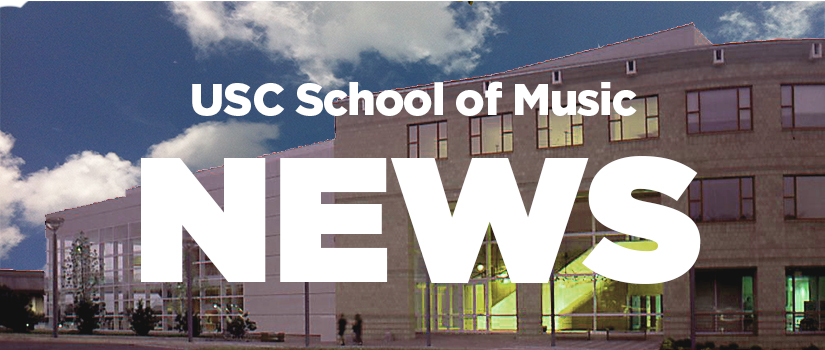Gail Barnes is recognized for excellence in string research
 Gail V. Barnes, professor of music education, was recognized with the American String Teachers Association
(ASTA) String Researcher 2019 Award for Long Term Achievement. ASTA sponsors an annual
award to recognize excellence in string research.
Gail V. Barnes, professor of music education, was recognized with the American String Teachers Association
(ASTA) String Researcher 2019 Award for Long Term Achievement. ASTA sponsors an annual
award to recognize excellence in string research.
The String Researcher Award is given to those whose work has contributed significantly to scholarship in string education and/or performance and the 2019 award honors long-term achievement in research. It was awarded to Barnes in recognition of her established record of sustained engagement in the following research activities: publication in juried research journals, research presentations at professional meetings, professional service in string research, and support (mentoring, collaboration, supervision) of other string researchers.
In her acceptance speech, Barnes recognized the many who influenced her: Her grandfather, a Greek immigrant who loved classical music; her mother, who drove her to lessons; and her husband, who started string programs in all-black schools in Norfolk, VA, financed by the Johnson Great Society program. She expressed appreciation to her dissertation advisor, Dr. Robert Gillespie (The Ohio State University); the many students she has taught both in public school and at the University of South Carolina; and finally, her string colleagues at the University of South Carolina who foster the music development of the music education majors who teach in the University of South Carolina String Project.
Barnes re-emphasized the need for collaboration, quoting from her speech in 2010 to
members of the Collegiate Roundtable:
"In order for research to be relevant and applicable, it is important for us to remember
our constituency. Our students and colleagues in the public schools may see research
as something abstract and distant, but string education researchers are conducting
studies in a variety of areas . . . Collaborating with our current students and public-school
colleagues may offer opportunities for greater understanding on both sides of this
imaginary dividing line."
Another main point was the need for all teachers to address social inequity. She encourages her students not to conflate race and economic status, but cited Kozol (2005) who found the rate of poverty in urban schools with high concentrations of black and Latinx students is six times higher than schools with high numbers of white students.
She cited efforts at ameliorating this inequity: At the University of South Carolina String Project, 25% of the current staff are either black or Latinx, which is a wonderful model for the children in the program. The vast majority of string teachers, however, are white and middle class. Therefore, it is necessary for all teachers, particularly pre-service teachers to develop cultural responsiveness. Five years ago, String Project Alumna and principal of Joseph Keels Elementary Alvera Butler proposed a partnership with the String Project. Students from Keels (a Title I school), accompanied by a teachers’ assistant, come to the program twice a week for lessons. The students get a head start on violin and String Project undergraduate teachers learn to meet the musical and educational needs students who have different backgrounds than their own.
Barnes closed her speech with a quote from DeLorenzo (Music Educators Journal, 2012):
"As citizens of a democratic nation, teachers may assume that all children have equal
access to the arts, but in fact, America is not a nation of equal opportunity for
all people. The music field is no exception, especially in the area of arts music.
Although a single music teacher can help counterbalance some of the barriers that
face disadvantaged children, it takes a group effort to substantively reform the way
we educate and recruit students of color into the profession. Perhaps it is time to
approach music teaching with a larger purpose in mind: that social justice is as much
a part of our job as teaching music itself."
She has served as director of the University of South Carolina String Project for 22 years.
For more information about the University of South Carolina String Project, email uscsp@mozart.sc.edu or phone: 803-777-9568
